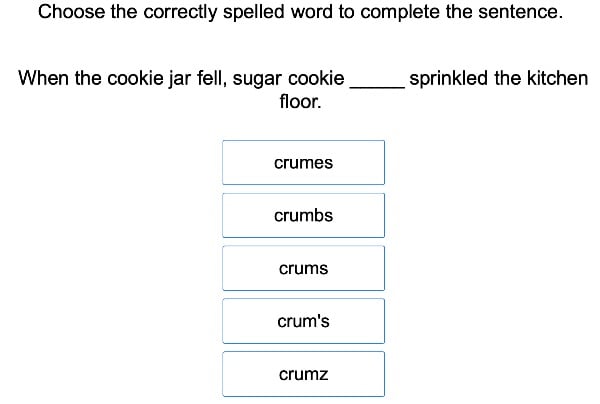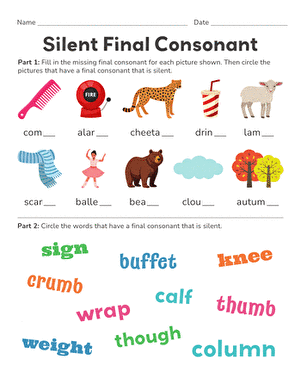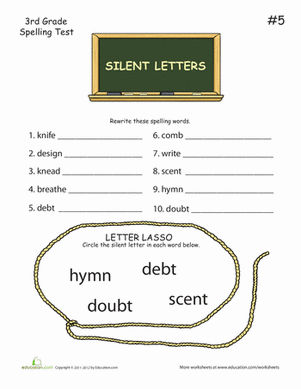3rd Grade Silent Letters Resources
About 3rd Grade Silent Letters Resources
On Education.com, help 3rd-grade students recognize and understand silent letters with a variety of worksheets and printable exercises. These resources reinforce phonics skills and improve reading accuracy by guiding students through common words that contain silent letters. Educators and parents can use these sheets to teach patterns, spelling, and pronunciation while making learning fun and engaging.
Discover educational activities like interactive games, spelling practice sheets, and structured lesson plans that improve recognition of silent letters in everyday vocabulary. These materials support foundational literacy skills, help students gain confidence in reading and writing, and strengthen language comprehension. Proper integration into lesson plans provides structured practice while maintaining student interest and motivation.
This collection allows educators and parents to directly access silent letter resources, streamlining lesson planning and classroom instruction or at-home practice. Each worksheet offers opportunities for reinforcement, assessment, and reinforcement of phonics rules, making it easier to track progress and provide targeted instruction. Together, these materials make learning silent letters accessible, enjoyable, and effective for third-grade learners.
Discover educational activities like interactive games, spelling practice sheets, and structured lesson plans that improve recognition of silent letters in everyday vocabulary. These materials support foundational literacy skills, help students gain confidence in reading and writing, and strengthen language comprehension. Proper integration into lesson plans provides structured practice while maintaining student interest and motivation.
This collection allows educators and parents to directly access silent letter resources, streamlining lesson planning and classroom instruction or at-home practice. Each worksheet offers opportunities for reinforcement, assessment, and reinforcement of phonics rules, making it easier to track progress and provide targeted instruction. Together, these materials make learning silent letters accessible, enjoyable, and effective for third-grade learners.





